News
-
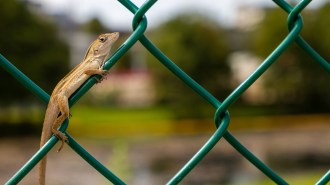 Animals
AnimalsUrban animals may get some dangerous gut microbes from humans
Fecal samples from urban wildlife suggest human gut microbes might be spilling over to the animals. The microbes could jeopardize the animals’ health.
-
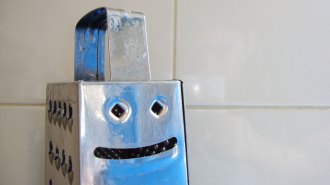 Neuroscience
NeuroscienceAmericans tend to assume imaginary faces are male
When people see imaginary faces in everyday objects, those faces are more likely to be perceived as male, a new study shows.
-
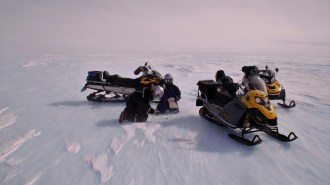 Planetary Science
Planetary ScienceMachine learning points to prime places in Antarctica to find meteorites
Using data on how ice moves across Antarctica, researchers identified more than 600 spots where space rocks may gather on the southern continent.
-
 Animals
AnimalsAn Arctic hare traveled at least 388 kilometers in a record-breaking journey
An Arctic hare’s dash across northern Canada, the longest seen among hares and their relatives, is changing how scientists think about tundra ecology.
-
 Artificial Intelligence
Artificial IntelligenceHow AI can identify people even in anonymized datasets
A neural network identified a majority of anonymous mobile phone service subscribers using details about their weekly social interactions.
By Nikk Ogasa -
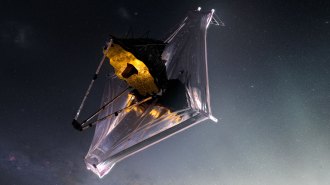 Astronomy
AstronomyThe James Webb Space Telescope has reached its new home at last
The most powerful telescope ever launched still has a long to-do list before it can start doing science.
-
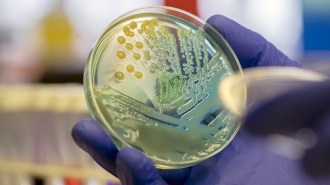 Health & Medicine
Health & MedicineAntimicrobial resistance is a leading cause of death globally
In more than 70 percent of the 1.27 million deaths caused by antimicrobial resistance, infections didn’t respond to two classes of first-line antibiotics.
-
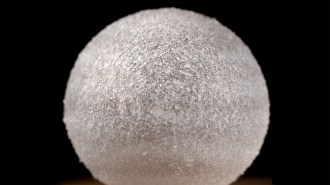 Physics
PhysicsAn ‘everlasting’ bubble endured more than a year without popping
One of the bubbles, made with water, glycerol and microparticles, lasted 465 days before popping.
-
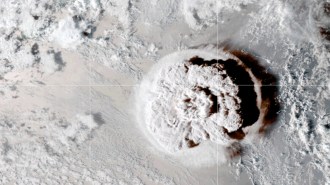 Earth
EarthWhat the Tonga volcano’s past tells us about what to expect next
The January 15 eruption of a Tongan volcano triggered atmospheric shock waves and a rare volcanic tsunami; its history suggests it may not be done.
-
 Astronomy
AstronomyAn X-ray glow suggests black holes or neutron stars fuel weird cosmic ‘cows’
With the brightest X-ray glow of a new class of exploding stars, cosmic oddity AT2020mrf boosts evidence of these mysterious blasts’ power source.
By Liz Kruesi -
 Climate
ClimateIntense drought or flash floods can shock the global economy
Rainfall extremes have powerful impacts on the global economy, affecting the manufacturing and services sectors more than agriculture.
-
 Humans
HumansBabies may use saliva sharing to figure out relationships
Actions like sharing bites of food or kissing may cue young children into close bonds, a new study suggests.